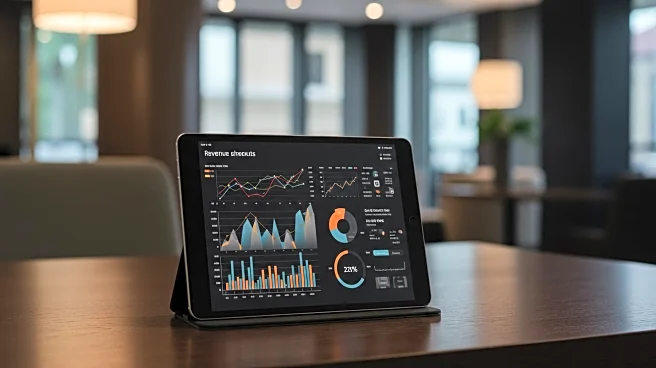What's Happening?
A study conducted by HES-SO Valais-Wallis across 1500 hotels in six European countries reveals that while many hotels have adopted digital tools for managing pricing, sales channels, and performance metrics, strategic integration and advanced analytics remain limited. The study highlights that 75% of hotels use a Property Management System (PMS), and 63% update rates through a channel manager, yet practices are fragmented due to the use of over 70 different PMS brands. Revenue management strategies are implemented by only 40% of hotels, with many relying on manual methods or external consultants. Key performance indicators (KPIs) such as occupancy rate and average daily rate are commonly tracked, but more advanced metrics are less frequently monitored.
Why It's Important?
The findings underscore the need for hotels to bridge the gap between digital infrastructure and effective use for performance optimization. The lack of standardization and interoperability among digital tools poses challenges, particularly for smaller or independent properties. The study suggests that while hotels have access to digital tools, they have yet to fully leverage their strategic potential. This has implications for the hospitality industry, as improved data consolidation and analytical literacy could enhance decision-making and competitive benchmarking, ultimately driving profitability and sustainability.
What's Next?
To unlock the full potential of digital tools, hotels may need to focus on integrating data from disparate systems into a unified dataset. Strengthening data consolidation and analytical literacy can support more informed decision-making. Tackling system fragmentation and promoting data interoperability will be crucial for raising the sector's digital maturity. As hotels continue to adopt digital tools, investing in comprehensive KPIs and revenue management systems could drive real value and enhance strategic insights.
Beyond the Headlines
The study highlights a broader issue of digital transformation within the hospitality sector. While access to digital tools is widespread, the strategic use of these tools remains uneven, particularly among smaller hotels and those in non-urban locations. Addressing these disparities could lead to more equitable growth and innovation within the industry. Additionally, the focus on room revenue rather than overall profitability suggests a need for a shift in performance evaluation practices.










